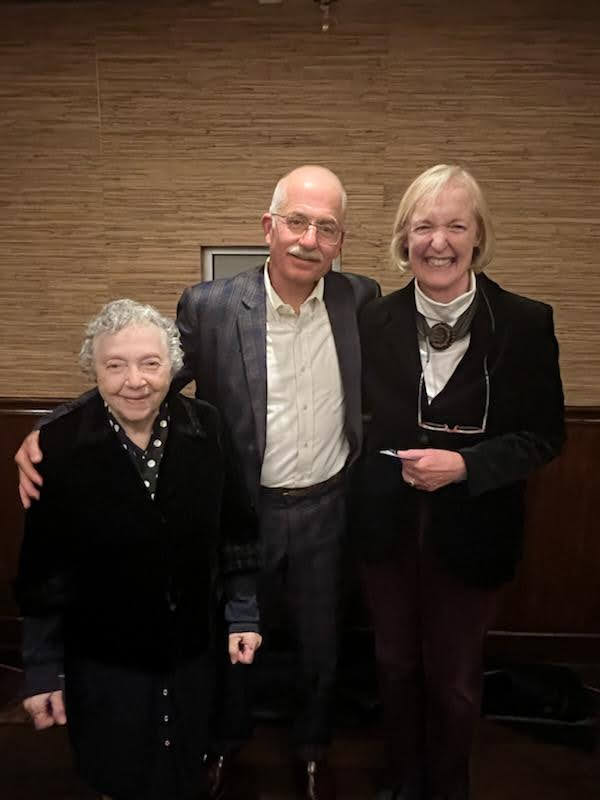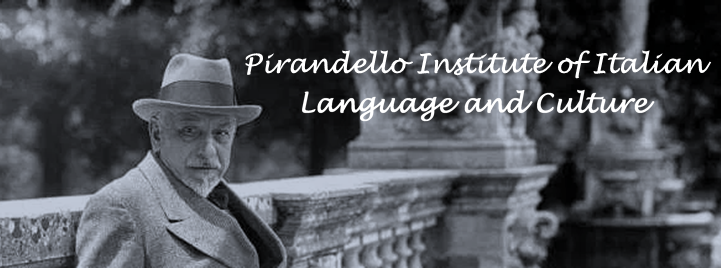Boccaccio’s epic masterpiece The Decameron tells of a group of upper class young people who gather for refuge during a deadly plague and tell stories of life and love, at first to avoid boredom and provide distraction, but ultimately with a faith that life itself will continue. In that classic tradition, a unique school located in upstate New York that is a beacon of Italian heritage has endured and survived the Covid pandemic to give continuing life to “all things Italian,” as its mission statement puts it.
The Pirandello Institute of Language and Culture was founded in 2016 in Poughkeepsie by Signora Vita Maria Giangrasso Mesnick, a native of Calatafimi in Sicily who has been a teacher of Italian in the area for sixty years. Originally located in one of the lovely Victorian houses for which the Hudson River city is famous, from the first it lived up to its name with a remarkable variety and range. Offering Italian courses at 22 levels, from learning how to form basic sentences in the present tense to advanced conversation in classes that have a specific theme, it also presented historical lectures, film screenings, art exhibits, book presentations and banquets that brought the flavors of Italy in every sense of the word to those who attended.
And it also had a series of highly distinguished visitors as speakers during these events.
La Voce columnist and professor of the Pontificial University of St. Thomas Aquinas in Rome Luigi Troiani joined Hon. Giorgio Benvenuto of the Pietro Nenni Foundation to present the book Memorie d’un cronista d’assalto by the late distinguished United Nations correspondent John Cappelli, which was published by l’Ornitorinco Editore of Milan. Famed editor and author Michael Korda gave a talk before a screening of Vittorio de Sica’s 1951 fantasy film Miracle in Milan, relating his memories on the set of the production for which his father Victor was the artistic director.
And the Pirandello Institute was just about to put on a marathon screening of the classic 1971 RAI miniseries The Life of Leonardo da Vinci, directed by Renato Castellani and starring Philippe Leroy as the master, when Covid-19 descended on its flourishing activities like a sudden and violent tempest, as it did to life throughout the world.
Forced to suspend in-person classes in March of 2020, the resulting loss of revenue led to the termination of the lease on its building that September. Yet, like Boccaccio’s spirited and persistent storytellers, the Pirandello people were determined to carry on with the work of culture despite what appeared to be the end of the school and its mission. Within a month Signora Vita announced that the Institute would reconvene in her home, and small classes in which the participants wore masks and observed social distancing, were cautiously resumed in March of 2021. And in a first for a longtime advocate of traditional teaching methods, Signora Vita began offering classes online on FaceTime.

La Voce di New York recently spoke to Dr. Vincent Beltrani, a prominent local dermatologist and academic who is the treasurer and co-founder of the Pirandello Institute and who recently returned from taking courses at the Comitato Linguistico academy in Perugia, to find out what is behind such resolution, and to get an update on the school’s evolution.
“As a lifelong academic, I feel the limiting factors for effective and meaningful learning are both passion and immersion,” Dr. Beltrani stated. “Without a strong motivation and desire to learn, a student will never have the impetus to continue the long journey towards mastering a given subject. In the past, it was common to complain that there was a lack of appropriate opportunities. In the Mid Hudson Valley, as far as learning Italian and exploring Italian culture is concerned, this shortage has now been eliminated by the foundation, persistence, and continued flourishing of the Pirandello Institute.”
And what motivated your recent trip to Perugia?
“Since retiring two years ago, I have had a dream of an extended stay in Italy with the purpose of immersing myself in the Italian language,” he explained. “Since I like to explore new regions every time I travel to Italy and had never been to Perugia, I did some research and found the Comitato Linguistico. This wonderful school has been around for several decades and offers an extremely flexible curriculum of Italian at every level, like Pirandello.
I was fortunate to have an extremely engaging teacher who understood my desire to switch my focus from advanced academic Italian to a more practical and usable daily conversational speech. Leaving the security of the classroom, I put it to use by actually living in Perugia and practicing la lingua parlata(the spoken language) with my new acquaintances — who were all warm and encouraging.”
What are the dynamics of online learning, and how has Pirandello adapted to them?
“As I have been studying Italian for many years, it is not surprising that my initial approach was a rather typical classroom learning one based on textbooks,” he said. But we live in an online world, and the onset of Covid basically forced everyone to explore this new and dynamic method of instruction. I have embraced numerous online opportunities including pre-recorded lessons by various Italian teachers as well as live ‘virtual’ classes on one of several platforms. While I initially tried these computer-based offerings with some hesitation and even cynicism, they have now become the main source of my learning immersion, offering an amazing breadth of information, constant availability, and remarkable flexibility.”
“As of this January I began teaching online classes using Google Classroom, and it has been quite a success,” he continued. “Some of my students who would otherwise not have been able to take classes, have embraced the ability to take classes from home with the option to easily change class times if necessary. There are some drawbacks, like audio/visual glitches and the fact that it can be difficult to share notes or scroll through an online dictionary. Still, this new frontier has been opened, and it will only expand.”
What are the current prospects of the Pirandello Institute?
“Vita has always passionately emphasized that we are a school with a focus on learning and teaching,” Dr. Beltrani concluded. “Over time her personal interest in holding Italian events such as film nights has dwindled. But we have nevertheless teamed up with artist Paola Bari, the curator of Gallery 40 in Poughkeepsie, to continue holding events at that space. Moving forward, our secondary objectives will be to serve as a resource that focuses on all activities relating to learning the Italian language and exposure to Italian culture as well as nurturing and growing a passionate community.”












